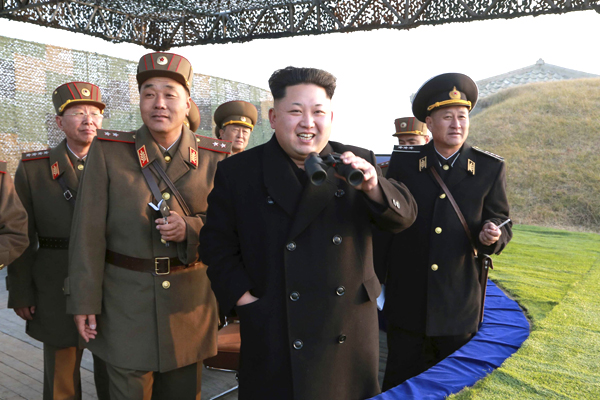 |
|
The DPRK's top leader Kim Jong Un holds a pair of binoculars as he organizes and guides a combined joint drill of the units under KPA Combined Units 572 and 630 in this undated photo released by the DPRK's Korean Central News Agency (KCNA) in Pyongyang November 23, 2014. [Photo/Agencies] |
An unidentified spokesman for the DPRK's National Defense Commission has been quoted by news agencies in Seoul as saying that the cyberattack "might be a righteous deed by the supporters and sympathizers" of Pyongyang.
In June, the DPRK denounced the film, saying it was insult to the country's supreme leadership. Indeed, the film shows little respect to the DPRK. With a comedic plot to assassinate the DPRK leader and the use of his real name, The Interview challenges Kim's leadership, which has been accepted by people of the DPRK as a whole.
The film's producers and the Motion Picture Association of America, which devises the production code for American movies, are aware of The Interview's theme, yet both seem to have turned a blind eye to its controversial content. Their selective "ignorance" is representative of how US society views the DPRK.
Washington did hope to establish diplomatic contact with Pyongyang when Kim assumed office three years ago. In a bilateral agreement reached on Feb 29, 2012, the United States promised to provide food assistance to the DPRK if it allowed International Atomic Energy Agency inspectors to return to the country. But Kim's pursuit of political brinkmanship, including the third nuclear test in 2013, thwarted this initiative and gave Washington the impression that he was a rash and insincere young leader.